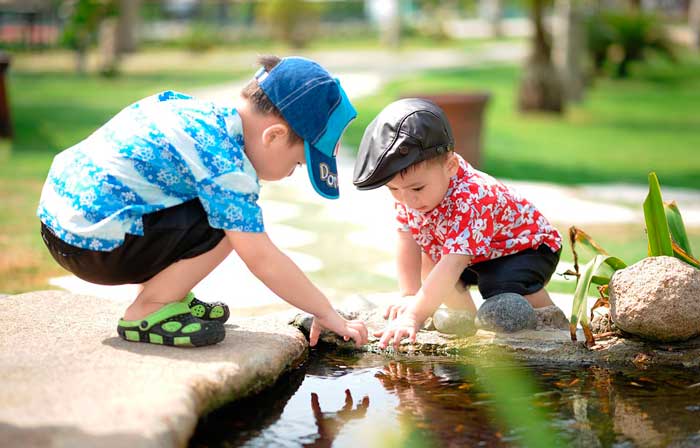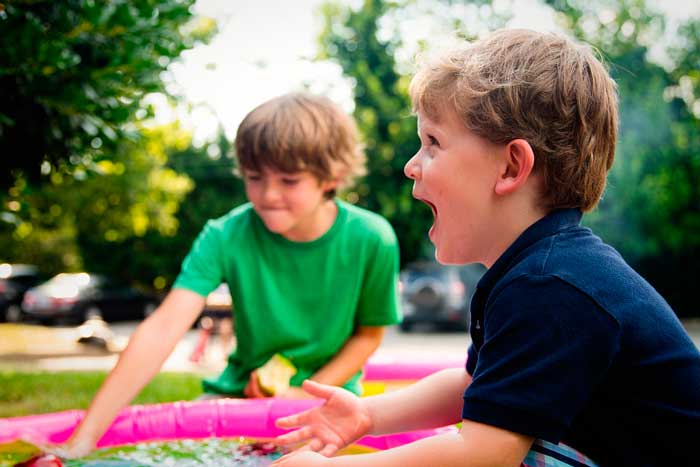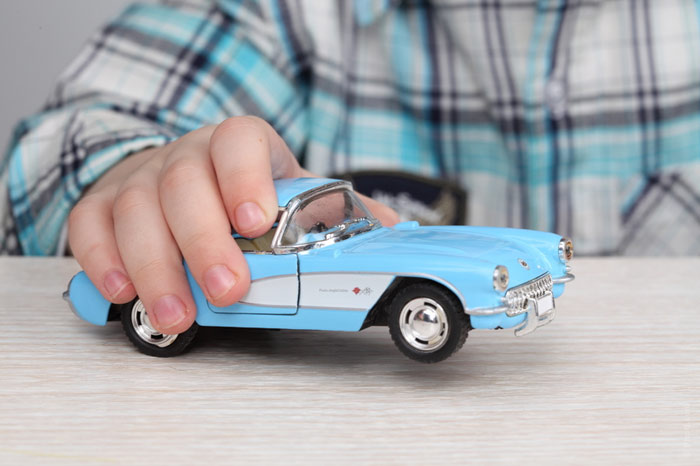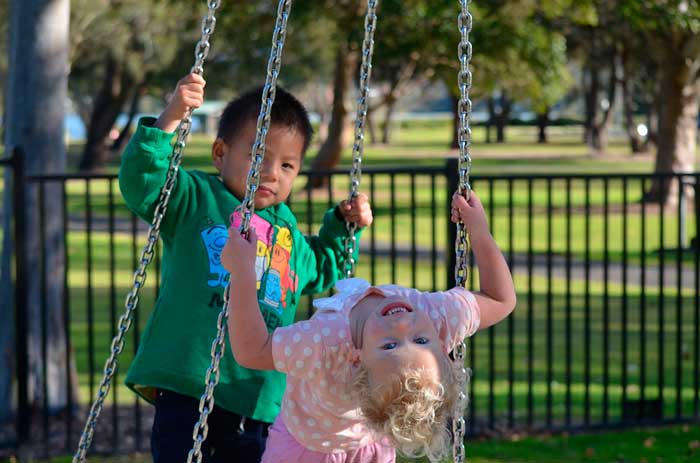Your Kid’s Important Milestone: Starting Them on Playdates
It’s time for your toddler to try and acquire their first grasp of social skills, yet it’s early days for them to play a perfect host. Parents have to step in and teach the little ones proper strategies and generally make them feel what fun playing together with a prospective buddy is.
To begin with, you must have noticed how babies get curious about other tots passing them by in a stroller? They are already gregarious, even when they don’t know what to do with it. And they won’t for a long while yet. Social skills is something that has to be cultivated. Therefore, while your toddler can be eager to get involved with others like him, the welcome situations may be fraught with difficulties. Brawls must be eliminated, rules of being an exemplary host and/or guest must be inculcated. In fact, there are loads of work ahead for little kids and their parents to do before they get the ground for friendships ready. Meaning before you get round to inviting somebody over, make sure you know the lines and are equipped to follow them up. Now about some really necessary ideas for a happy play hour.
Offer thorough explanations
See if your munchkin stands in a need of explanations. As you begin to set about playdating, mind they don’t have blank spaces in their minds about what is going on and how it should be. The child should be aware that what is meant is a long-term relationship (that is, you will be seeing one another regularly), and you will meet in different places, like your home, being a host, the friend’s place, being a guest, or in some place for children where you will play. Both of you will have to agree on what and how to play and probably enjoy a snack later. You hope they will like it.
Rehearse the host part
There is no such thing as an inborn host genius, we have to learn to be one, and the earlier we begin the better. How about mom going to play a visitor so that your kid can show his worth in trying to be polite, practice greetings and showing where to place the outer clothing? Then comes the second act: the nursery, an excursion round the room. Change roles, let the kid play a guest – show him your favorite toys and then take him to the kitchen where some drinks and snacks have been prepared beforehand.
Be wise about the list of guests
It will be much more comfortable for your tot if they know who they are going to meet. When you invite people in, it would be someone mapped out for a friend – and their mother or babysitter. If you go over to other people’s place, there can be quite a few people – other friends, their parents, siblings. Pets will need a special kind of training, especially if you don’t keep pets at home. The child should know that he is supposed to ask whether they may touch them, stroke them softly, without pulling at the tail or the ear. Use a stuffed toy to stroke and fondle so the kid knows the basics of the skill. If you mean to leave him with other people and go away to see about your own affairs, be sure to tell him that an adult in the household will take care of his needs.
Pre-plan the activities
Actually, there’s no end to what you can do, the more so if you’ve got a friend to share it with you. In case you are waiting for visitors, discuss the activities with your child in advance. Where will they be playing, outside or inside? What will they be doing? Maybe something needs to be prepared or arranged beforehand. Then, snacks – you will have to store up on them too, maybe even go to the store together. Make your little one involved in the preparations as much as you can, he will be learning then to be more committed. You can run through these motions even if it won’t be you hosting. Inquire your budding social butterfly what they think they will be doing, what they will play.
Prepare a strategy to teach them sharing
Think up a game where kids will have to share toys – say, organize an animal hospital. Explain to the toddlers that the more animals will come the more interesting the game will get. They will be doctors and different animals with ailments will come to see them. Remind the child that when he lends his toys to his guest, they remain to be his, the guest will play with them only during the playdate and won’t take them away just because they were shared. Should the kid refuse to share his favorite toys, separate them from the rest and put them away in a safe place. Let the tot know that when he comes on a visit to his friend they will be sharing their toys on the same principle. Make them understand that guests are expected to exercise care with the host’s things and toys.
Time to learn to take turns
That’s a difficult notion for little children to digest, and they probably won’t be able to fully carry it out in practice until they reach the school age, but you know it is a necessary skill that is certainly worth your while cultivating. You may fail to get your young progeny to follow the principle at the beginning, yet you would do well to persevere underscoring the positive effects: taking turns is fair, more entertaining and, eventually, better fun. Again, this wants industrious practicing – first you throw the ball, then I will do it. If it’s something more complicated, use a timer to show when the turn passes. Remind the baby of the times one has to stand in line or do other things by turns like singing songs on the screen. They have to know that everybody does it.
Meeting halfway
Reaching compromises isn’t the easiest thing to do, and your two kids in the middle of a playdate won’t be able to make it should they suddenly make up their minds they want to play it each their own way. All of a sudden one little fella wants to get busy with animal toys and the other is bent on throwing a ball all over the room. You need to work as a mediator: they may begin with one activity and follow it up with the other. If they must needs go for their chosen activities simultaneously – let them think up a joint activity for later and do what they want separately before reuniting again. If they had previous playdates you know already what they were willing to do together. Anyway, practice offering your guest the first choice and introduce the idea of taking turns choosing.
Things are not the same
Having a bathroom and a kitchen differently located, having different doorknobs, a differently placed TV set can be a bit (or more than a bit) puzzling for a toddler. It might be they will need explanation about in what ways the host’s house can be different from yours: wallpaper patterns and colors, other pieces of furniture, staircases, windows, etc. While it all may look very different, it is supposed to give the same comfort level. Tell the tot there are sure to be drinks, snacks, toilet and other things he may need. If you are the hosts, play a guest and get the little one to take you over the place, stopping at all important places and paying attention to the way they function.
How to say good-bye
The time is over, the kids are tired and need their repose even if they had lots of fun. Parting behavior is another pattern that had better be rehearsed beforehand. Explain that it’s natural for an adult (and for a little kid) to feel sad at parting, but there will be other dates in the future. You will give them a warning some 10 minutes before you will be leaving, and there will be things to do: for the host to thank guests for coming along, for the guest to help put away toys and thank the hosts. Once all these points are clear and gone over, you can be sure things will work out to everyone’s satisfaction!




